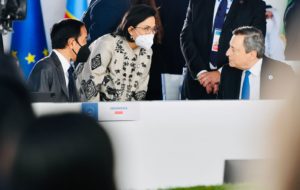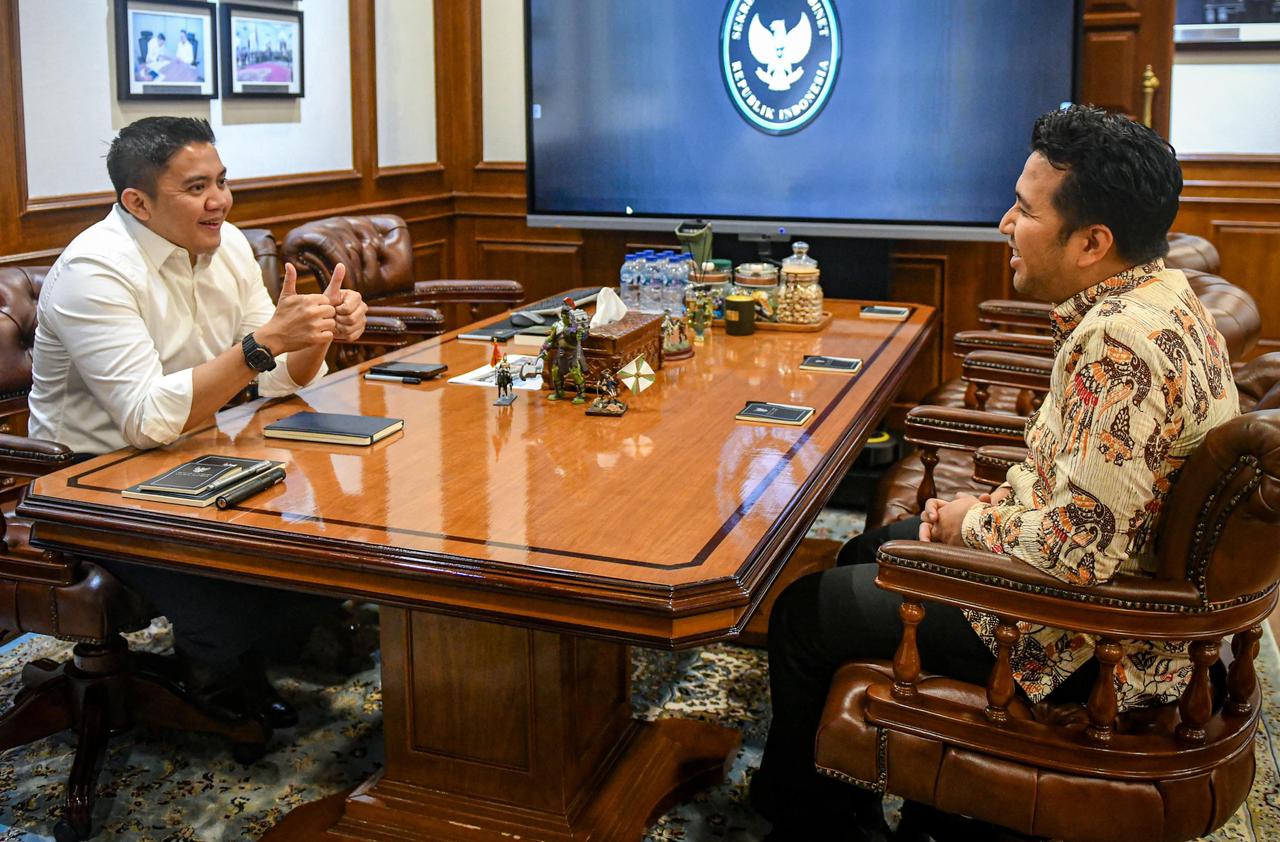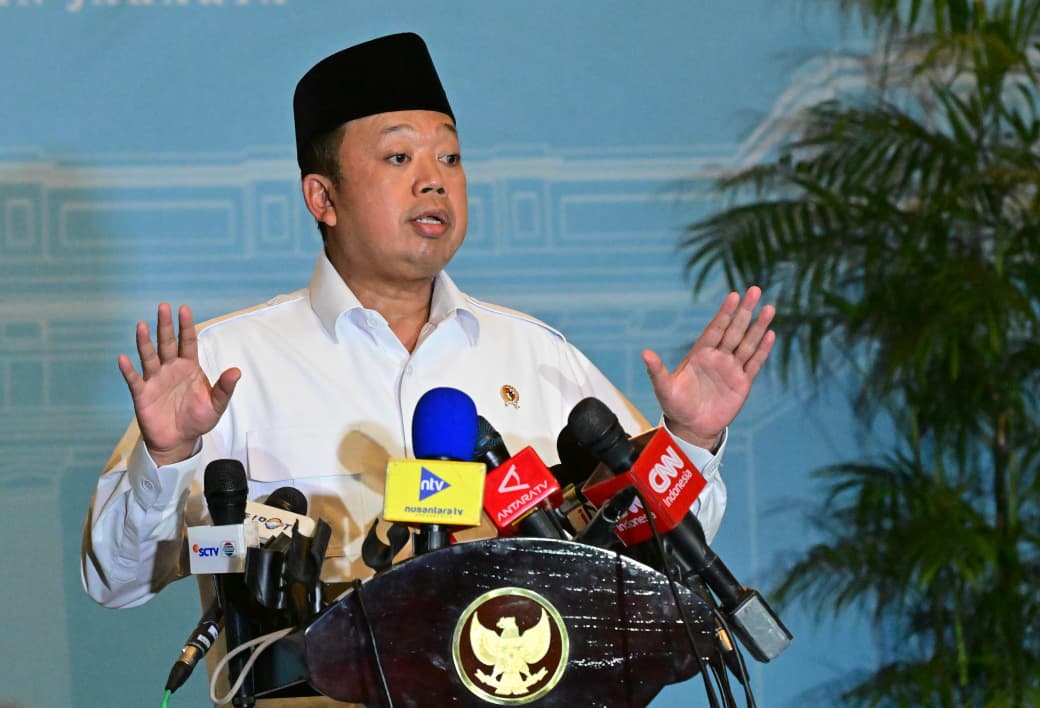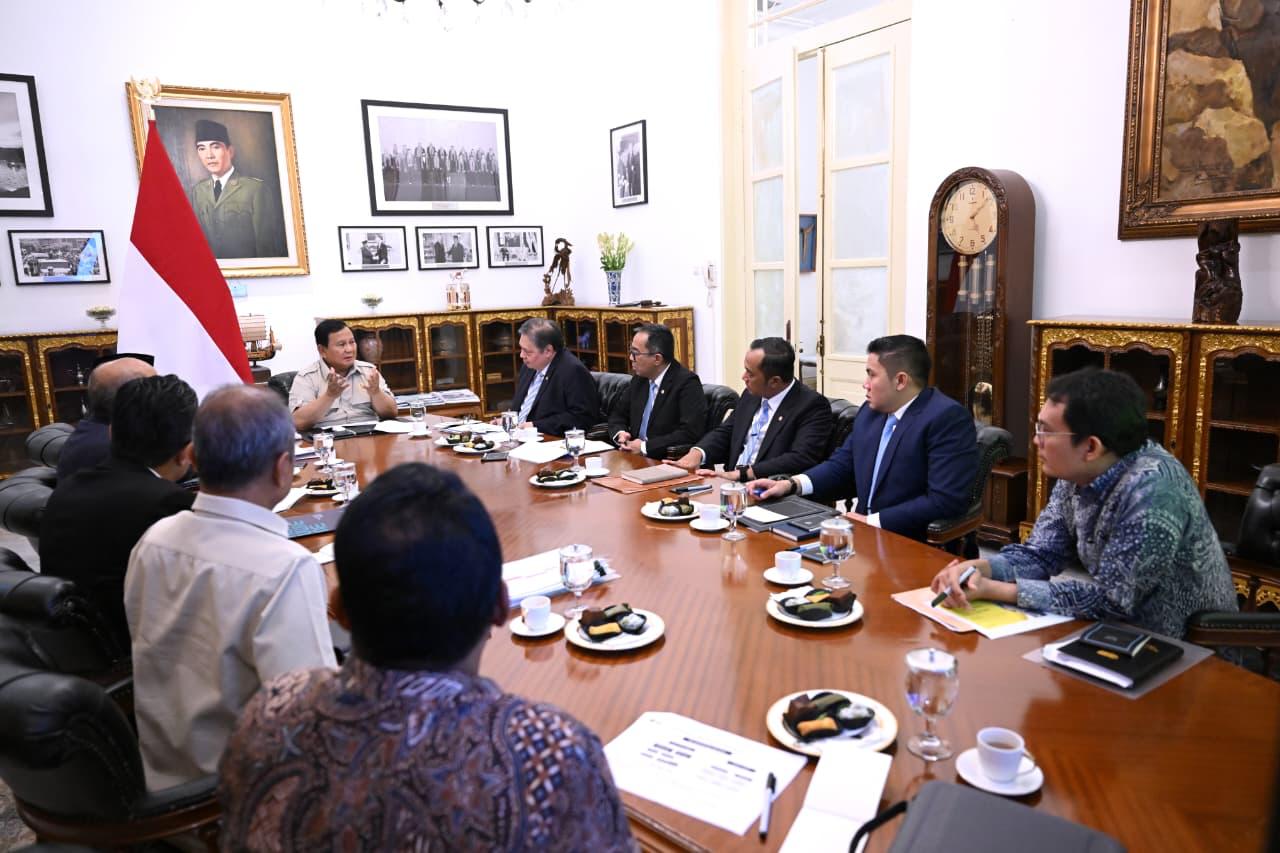President Jokowi Pushes for Strengthening of Global Health Architecture

President Joko Widodo accompanied by Minister of Finance Sri Mulyani talks with PM of Italy Mario Draghi, at the G20 Summit in Rome, Italy, Saturday (30/10). (Photo by: BPMI/Laily Rachev)
On the G20 Summit, President Joko “Jokowi” Widodo has called on all countries to strengthen the global health architecture.
“In order to build a world that is more resilient to pandemics and future shocks, Indonesia invites world countries to strengthen the global health architecture,” said President Jokowi
at the G20 Summit session which discussed issues related to global economy and health, in La Nuvola, Rome, Italy, Saturday (30/10).
In a bid to realize this, the President explained that a mechanism for raising global health resources must be drawn up. This includes funds, vaccines, drugs, medical devices, to health workers who are ready to be deployed at any time to help countries experiencing health crises, he added.
“The IMF has set an example about raising global financial resources to help countries experiencing a financial crisis as international financial support for health and climate change issues is very important,” he said.
President Jokowi also called on all state leaders who were present at the Summit to establish global health protocol standards related to cross-country activities, including health protocols for interstate travel.
Furthermore, he underscored that the G20 must become an important part of the solution to address the scarcity and inequality of vaccines, medicines, and essential health equipment.
He went on to say that the G20 must support production diversification and transfer of technology to developing countries, eliminate trade barriers for vaccine raw materials, support the TRIPS Waiver, and continue to increase dose sharing and support the COVAX Facility.
“The process of restructuring the architecture of global health resilience must be inclusive, and adhere to the principles of solidarity, justice, transparency and equality,” he said.
In addition to global health resilience, President Jokowi also encouraged the G20 leaders to accelerate a stronger, more inclusive and sustainable global economic recovery. According to him, the G20 needs to become a catalyst for coordination towards the normalization of economic policy, following the extraordinary policies in the fiscal, monetary and financial sectors that have been implemented in the past two years.
The G20, he continued, should also become a catalyst for liquidity support and debt restructuring for poor countries, as well as for reactivation of global connectivity, especially sectors that heavily rely on the movement of people and goods, such as tourism and manufacturing.
“Cooperation on innovation, digital technology and green technology, as well as increasing investment for inclusive and sustainable growth, and supporting global partnerships for the development of developing countries is of particular importance,” he remarked. (BPMI/UN) (EST/MUR)








